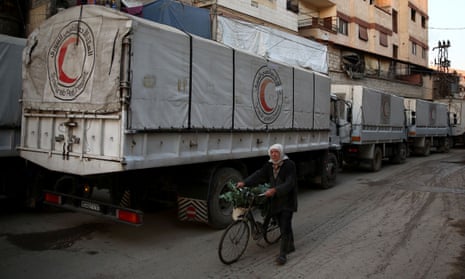Localisation is one of the big topics for May’s World Humanitarian Summit, but the way it’s been discussed so far leaves some of the central issues untouched. Here are five aspects around localisation that need more serious thought.
1 | Respect southern aid workers
Southern aid workers have had enough of patronising attitudes and cultural insensitivities. Anyone who’s been in the aid sector for some time also knows that racism prevails – codes of conduct have not stopped it.
One common stereotype is that southern organisations present a high risk of corruption. Another is the double speak in which instrumental sub-contracting relationships are presented as partnerships. Nothing will change unless our starting point is one of respect. This is not just a moral requirement; it makes good strategic sense in a world where demographic, economic and political power is shifting to other continents.
2 | Stop judging local NGOs as incapable
Another stereotype is that local organisations don’t have the means to do quality work. This is problematic for a number of reasons.
First, the aid world always focuses on the needs, gaps, weaknesses and fragility when it comes to local organisations and humanitarians. Often this refers to the abilities to meet the bureaucratic requirements of the international aid industry, rather than what is required to operate effectively in very difficult environments.
Second, by portraying local agencies and NGOs as not capable, western agencies – who for decades have been raising funds to build capacity – are revealing that they have not used these funds effectively. If we start from the assumption that there is commitment, competency and the required abilities, we will work together more respectfully and constructively.
Third, we urgently need to end what has been lamented for years: that the way international aid organisations operate often undermines local efforts, particularly where internationals have an established presence. This is done by taking over all decision-making, hiring away the best local people, only providing heavily-earmarked funding, and driving local inflation: our requirements for office and living space, rental vehicles and so on significantly increase costs for long-established local organisations. (Then we claim that local abilities need to be strengthened before we can hand over – a role for which we hire expatriates.)
3 | Re-examine the neutrality issue
Some argue that local organisations in conflict situations cannot be supported as independent frontline agencies because they cannot, or do not want to, operate with neutrality. While this argument is not unfounded, it hides the inconvenient truth that this often applies to international organisations, too.
Many humanitarians operate with institutional funds. This sometimes compromises their independence because relief aid is sometimes used as a foreign policy instrument, for example, to “win the hearts and minds” of Afghans, Iraqis and others. While local humanitarians may operate with humanity and impartiality, we cannot expect all of them to be politically neutral; many hope to change power relations in their own society. But many international agencies also have multiple mandates, and will get involved in socio-political dynamics as they shift to development and governance-related work.
4 | Make alliances genuine partnerships
In the past, big international NGO alliances were made up of northern members. Now, they are also registering themselves in many aid-receiving countries, or are adding national members from the global south to their alliance. INGOs justify this as they are closer to where the needs and challenges are, and are establishing greater legitimacy in southern countries. But reducing costs is another reason not often cited.
Several southern NGOs look upon this trend of international agencies and alliances ‘going local’ with apprehension. Asking southern NGOs to change their identity in order to become part of an international alliance is like franchising, not diversifying or building coalitions. Instead of giving southern organisations easier access to specific expertise or creating better conditions for genuine partnerships, the result is likely to be harder competition for limited funds, even in domestic markets.
5 | Professionalise southern NGOs
The global political economy is changing rapidly and southern NGOs would be fully justified in challenging the modus operandi that has prevailed for decades. But like international agencies, they too need to overcome organisational and individual competitiveness, strategic deficits, weak accountability, and the excessive reliance on grants.
If southern NGOs are to be seen as professional and trustworthy they must demonstrate what we know are factors for success: a deep understanding of the situation, smart implementation with quick feedback, strong financial management, accountability and collaboration, as well as the ability to not just implement projects but also to engage the wider public on issues like marginalisation, poverty, vulnerability and resentment.
Many southern organisations have such strengths and they merit more direct and better quality funding, as well as being recognised as key stakeholders in debates on policy.
It has been said that the aid world should evolve towards a situation characterised as being “as local as possible, and as international as necessary”. It’s a catchy phrase and has been picked up with some enthusiasm. But who decides what is possible and what is necessary?
The World Humanitarian Summit needs to address these issues. Otherwise it will become one more expensive missed opportunity.
Koenraad Van Brabant is an independent consultant.
Join our community of development professionals and humanitarians. Follow @GuardianGDP on Twitter.

Comments (…)
Sign in or create your Guardian account to join the discussion